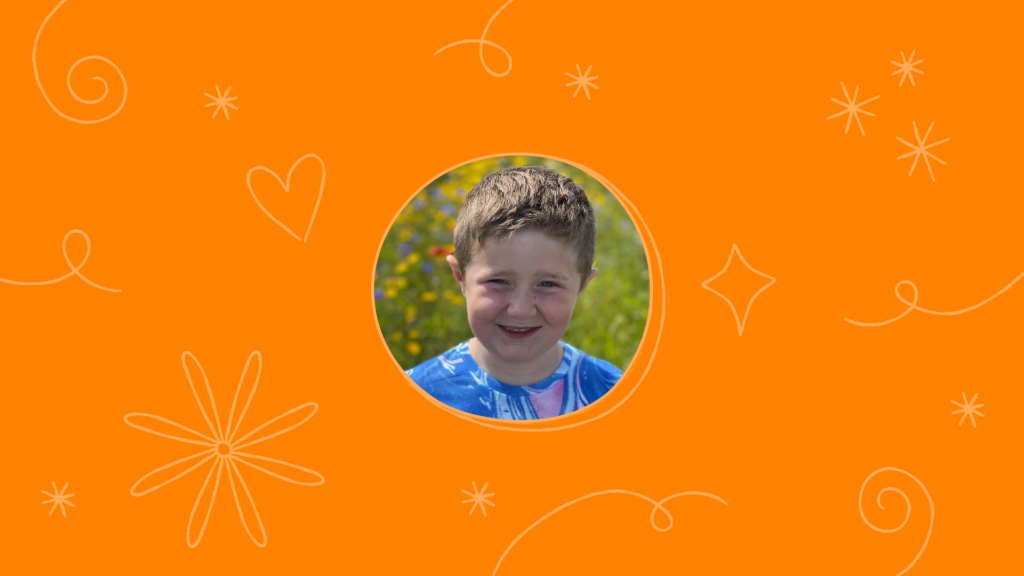
- 5 mins
Autism Acceptance Week – Moshi User Story from an Autism Mom

Every parent wants the best for their child. Especially when you have children with complex needs, managing what is best for them can be daunting. Here are a few of the highlights directly from parents of children on the Autism Spectrum and their hopes for how others can better understand their child’s place in the world.
To the observer, it may seem like our child is acting up, being disruptive on purpose, or even naughty. It’s much more likely that something isn’t sitting quite right in their mind, and perhaps this is the only way they know how to communicate it. Our child may be experiencing sensory overload, misunderstanding boundaries, or they may simply feel confused. How others perceive a child’s behavior has a great impact on their sense of belonging. Instead of assuming they are doing something wrong, consider, “Perhaps this child struggling for some reason, and they are doing their best to manage it.”
It’s common for children on the spectrum to experience communication challenges. Keep communication open but stay simple. Let them show you things, ask them to take you to see what they mean and show an interest in anything they are interested in! These seemingly small interactions mean you can both learn from each other.
Compared to neurotypical children of the same age, children on the Autism Spectrum exhibit speech delays or prefer selective communication styles or non-verbal communication entirely. Our child has opinions and desires to be understood as much as any other child. They just need a little more reassurance and patience sometimes.
Expressing feelings in a way we can understand is challenging for children on the Autism Spectrum. Our children may appear disengaged, but they are always observing. It’s likely they are very emotionally and possibly sensory sensitive. They feel so deeply and can feel frustration easily. They appreciate when you follow their lead when managing meltdowns and tantrums. They’re only reacting in the way they feel comfortable navigating a complex emotional mindscape to the best of their ability.
Our child struggles with social situations and has great difficulty navigating the unsaid cues or norms that others take for granted. Even a simple ‘hello’ may be misunderstood. They are asking questions out of the desire t understand – not to be difficult. It is because they genuinely are trying to gain insight into your motivations. Maybe they walked away halfway through a conversation. It’s more likely they are distracted by something you were not privy to.
Children on the Autism Spectrum can have various levels of sensory sensitivity, especially when it comes to food texture and temperature. How the food is presented can influence what they will or will not consider suitable. Even if they’re hungry, the sensory experience can override their desire for food. They are not being picky; it’s because they assess what is on the plate with a different set of considerations than you might be used to.
Stimming – or stimulation output – is what you see when your child is hand-flapping, jumping, spinning, head-banging or repetitively stroking the fabric on a clothing label. Sometimes this is because they are frustrated, stressed or anxious – though it can also be the opposite. The immediate sensory stimulation could be our child’s way of repeating something pleasurable, control of sensory input or distracting themselves from another input that is making them uncomfortable. Each child has a unique way of dealing with situations, and understanding their patterns enables us to better support them.
Communication and social challenges are part of our child’s everyday life. They may behave differently from what you expect; they may not connect in the way other children do. However, this does not mean they are stupid. In fact, your child is extremely high-functioning when it comes to intelligence. Especially when it comes to subjects they’re passionate about, children on the autism spectrum are not only brilliant but talented, knowledgeable, creative and kind. Differently wired brains mean our child puts in a ton of effort every single day, and they have so much potential to be extra bright little stars.
Parents are aware when their child is different than others. It is a constant balancing act to ensure they have access to the support they need and be an active part of their family and community. Include our child when organizing birthday parties, gatherings, play dates – just as you would the other children. It’s possible they may not be able to attend, but please allow us to join in. Try encouraging your child to play with them, even though it might be more complex to figure out than the type of play they are used to. Inclusivity must be a priority. The more inclusive you are, the easier it will be for them to socialize, and your child learns inclusivity too! Our children may struggle, but they want friends too, even if they’re not sure how to be sociable.
Having a child on the autism spectrum doesn’t make us experts – however, we can offer insight into our experience of our child. We appreciate it when you have taken the time to learn a little bit more about our child’s challenges. Each person with Autism Spectrum Disorder is a completely unique individual. No two autistic people are exactly alike. Please use your best judgment and avoid generalizing statements about Autism. Treat our child as an individual, with unique needs, challenges, and interests. One brilliant phrase that summarizes this is from Dr. Stephen Shore; “If you’ve met one individual with autism, you’ve met one individual with autism.”
“A child with autism is not ignoring you; they are waiting for you to join their world.”